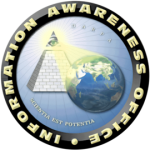 Crises arise for a host of cosmic reasons. Astrologers figure out what these reasons are by taking apart the pieces of planetary configurations, like this month’s cardinal cross.
Crises arise for a host of cosmic reasons. Astrologers figure out what these reasons are by taking apart the pieces of planetary configurations, like this month’s cardinal cross.
The fact that most of us are in the throes of individual crises right now is not a surprise to anyone who’s been following this transit. Each of its four corners is trying to provoke self-confrontation.
The Jupiter corner wants us to mature into our integrity.
What is True?
Neither a personal nor a trans-personal planet, Jupiter is a social planet: it has to do with where we stand vis-à-vis our culture and its commonly held truths. Its presence in the cross indicates a massive crisis of meaning, for individuals and groups.
By contrast with Mercury, which is about data, Jupiter is about knowledge.  It’s about cobbling together a world view, which becomes more and more refined through self-knowledge. Like every other piece of the psyche, Jupiter either does or doesn’t mature with time.
It’s about cobbling together a world view, which becomes more and more refined through self-knowledge. Like every other piece of the psyche, Jupiter either does or doesn’t mature with time.
All of us are born with the potential to understand everything we need to understand. We manifest this potential to the extent that we keep working on ourselves.
keep working on ourselves.
Astrologically speaking, working on ourselves means embodying each planet in our chart, as fully as we can. If we don’t, we fail to put our individual stamp upon the way a given planet shows up. We may project it, or give its power away.
If this happens with Jupiter, our ability to make moral evaluations stays stunted.
This spring is the perfect time to commit to our Jupiterian birth right. We do this by asking ourselves whether we’re in touch with our capacity to know what’s true, or whether we’re letting outside agencies determine this for us.
Mediated Reality
Journalism is printing what someone else does not want printed. Everything else is public relations.
— George Orwell
Most modern people understand that The Media plays a huge role in determining what we know. When we speak of somebody “knowing what’s going on,” we usually mean they follow the news.
But the news isn’t reality, of course; it’s the media’s  version of reality. CNN et al are delivery systems for a particular version of reality.
version of reality. CNN et al are delivery systems for a particular version of reality.
I’m not proposing that we disconnect ourselves from the mass media; that would be a form of denial.3 We need to stay in touch with societal assumptions.
But if we want to develop our Jupiters — our capacity to see life in perspective – we have to understand, first of all, that these assumptions exist. We have to know spin when we see it.
Consider the Snowden revelations that rocked the news last summer (Jupiter was transiting the US Mars-Neptune square at the time). When I first heard about it, I thought: Lord have mercy, could it be that the Total Information Awareness program – that loathsome spying-on-citizens program that shocked and appalled Americans so much in 2002 that Congress dropped it like a hot potato before it even started — had gone and happened anyway?2
Yes it could, and yes it had. And here was proof. As my generation did, with the Pentagon Papers, now a new crop of alerted citizens could begin connecting the dots about the extent of government surveillance in the post-9/11 world.
But, no. Before you could say George Orwell, the pundits went and shanghaied the narrative.
Air-Brushed Reality
You remember what happened. Civil libertarians never had a chance to sprint out ahead of the issue; the public didn’t have time to go through the requisite phases of outrage and strategic response. The mass media grabbed hold of the story and foisted upon it the meaning by which it became known.
to sprint out ahead of the issue; the public didn’t have time to go through the requisite phases of outrage and strategic response. The mass media grabbed hold of the story and foisted upon it the meaning by which it became known.
They strapped it into the stylist’s chair and made it People-Magazine-friendly. Suddenly the event was all about the pole-dancing girlfriend and the nerdy glasses. It had become The Edward Snowden Story.
This bombshell revelation about the secret mass collecting of citizen data by the World’s Greatest Democracy was shrink-wrapped, personalized and reduced to a good/bad question: Do you see Snowden as a traitor or a hero?
 Priorities
Priorities
In the wired world, insufficient information is not the problem. Goddess help us, we’re so informed, 24/7, that we depend on the media to filter the flood. Aggregate sites and the nightly news select for us what world events to pay attention to, on any given day.
The problem comes in when we don’t realize this selection is happening. We forget that what we’re hearing relies upon somebody’s point of view, as does what we’re not hearing.
Ask yourself: If there were no mass media, and no group-think arising from it, what would you decide were the most important things happening in the world right now? Make a quick list of current events that, for you, most succinctly characterize this particular historical moment.
Does your list match that of the mass media?
Widened Gap
Probably not, and we can expect the difference between our list and the media’s list to become more and more extreme. Astrologers have been saying for quite a while now that the cardinal cross years would widen the gap between the interests of powerful agencies (Pluto) and those of ordinary people (Uranus).
But we don’t have to be dis-empowered. Not if we honor and exercise all of our inner resources, i.e. each planet in the chart. 
When we honor Jupiter, we develop, quite naturally, the understanding to make sense of our era. We attract just the right teachers at just the right times. Even when hit by a swirling multiplicity of data, we’re able to give our attention to that which is inherently noteworthy. We can distinguish immediately between what’s urgently important and what isn’t.
In this perfect Jupiterian scenario, here’s a fact that I think would be #1  on every thinking person’s list: The 85 richest people in the world own wealth equal to that owned by the 3.5 billion poorest half of the world.
on every thinking person’s list: The 85 richest people in the world own wealth equal to that owned by the 3.5 billion poorest half of the world.
This is a stunning piece of information: self-evidently relevant, and not on the news.
Time Tourist
 Here’s another thought experiment. Imagine how things would appear to a person from another era, who suddenly arrived in our world as a time tourist. Doesn’t it seem likely that, given the crises that beset our beleaguered planet right now, this person would find it astounding that the state of the Earth wasn’t the lead story of each and every news day?
Here’s another thought experiment. Imagine how things would appear to a person from another era, who suddenly arrived in our world as a time tourist. Doesn’t it seem likely that, given the crises that beset our beleaguered planet right now, this person would find it astounding that the state of the Earth wasn’t the lead story of each and every news day?
Imagine our visitor watching TV and hearing the gals and guys on Morning Joe discussing the rumor of an Asteroid Hitting the Earth. Do you mean to tell me, our observer might say, that y’all are worrying about how to capture a  hypothetical asteroid crashing into Earth from space, when, in the meantime, right now, you’ve got seacoasts eroding, species going extinct, water supplies threatened and umpteen other predictable disasters happening right in front of your faces, due to global warming – a crisis you have the ability to do something about?
hypothetical asteroid crashing into Earth from space, when, in the meantime, right now, you’ve got seacoasts eroding, species going extinct, water supplies threatened and umpteen other predictable disasters happening right in front of your faces, due to global warming – a crisis you have the ability to do something about?
Let’s imagine that our time traveler (who is, let’s say, genuinely fascinated by human civilization) is trying to understand the modern attitude towards crime. I think this person would find it immensely telling that the second-largest criminal industry in the world in 2013 was the trafficking of human beings (it was tied for second place with arms dealing. The first was drug dealing). 
I can’t help but think that s/he would find it well-nigh incomprehensible that this sobering fact wasn’t common knowledge among the educated populace of 2014, for whom the more interesting crime would appear to be Justin Bieber’s drunken house party.
And what do you suppose our visitor would make of the hoopla about 300 missing persons in a Malaysian airplane, when 260,000 dead in a Somalian famine warranted barely a speck of the public’s brain space?
Knowledge Disseminators
Jupiter, when working at full capacity, expands our minds. When we give our Jupiter away, we forfeit the chance to educate ourselves. We lose touch with our inborn hunger to learn about the world.
Reclaiming this part of our minds – the ancients called it the higher mind (Mercury was the lower mind) — starts with the simple acknowledgement that there are things about our current world moment that would strike us as immensely more deserving of our interest and attention than what’s served up by the official knowledge disseminators.
In many parts of the world, the official knowledge disseminators are  churches and dictators. In the capitalist West, they are the corporate media.
churches and dictators. In the capitalist West, they are the corporate media.
When our Jupiters are functioning as they should, we learn new things; we become more worldly. This month, let’s take a good look at how  knowledge gets dispensed in our lives. Is what we learn truly broadening our horizons?
knowledge gets dispensed in our lives. Is what we learn truly broadening our horizons?
I had a Jupiter revelation last week. There was an AP story in the paper about Obama’s visit to Saudi Arabia. It described the ornate meeting room where the gentlemen met, the elegant 89-year-old sheik, the frank exchange about Syria, blah blah blah. Left un-described – because unquestioned assumptions don’t need to be spelled out — was the ironclad, decades-long alliance  between Washington and this king of the oil fields.
between Washington and this king of the oil fields.
The American public is so used to this arrangement that any other way of thinking about Saudi Arabia would strike us as odd.
That’s why it was interesting to find another story about the same country deep in the back of the same newspaper, from a different angle. An Indonesian woman had just been  released from jail after serving ten years of a death sentence for sorcery. Apparently it’s quite common for immigrant laborers to be accused of witchcraft by paranoid Saudi employers, who assign diabolical significance to the folk talisman or heirloom that a maid may have brought with her from her home country.4
released from jail after serving ten years of a death sentence for sorcery. Apparently it’s quite common for immigrant laborers to be accused of witchcraft by paranoid Saudi employers, who assign diabolical significance to the folk talisman or heirloom that a maid may have brought with her from her home country.4
The first story, about the president and the sheik, represents the Washington-sanctioned perspective, disguised as front-page news. Its innocuous paragraphs had little function outside of reinforcing in the reader’s mind the official stance towards Saudi Arabia.
The second story, by contrast, was genuinely educational. It fed my Jupiter.
Similarly, any real knowledge about the current unrest in Venezuela is unlikely to be found through mainstream channels. Americans, probably unique among the informed peoples of the world, by and large fail to see the hand of the CIA in “uprisings” of this nature until the truth leaks out years later.
This doesn’t mean the information is not available, in real-time, if we venture outside of the official narrative (see this report).
What is Morality?
Jupiter governs our sense of morality. When it is working at a low level, notions of higher truth will be stuck in a state of ethical immaturity. We  see this in dogmatic and literalistic religions, in black-and-white ideologies and in sentimental reactions to tragedy.
see this in dogmatic and literalistic religions, in black-and-white ideologies and in sentimental reactions to tragedy.
In its crude form, Jupiterian largesse tends to be highly selective, picking and choosing which deaths deserve attention. Consider the countless words of mourning that American pundits devoted to the killing of twenty children in Newport, Connecticut, as contrasted with their silence in the face of, for example, the twenty thousand children estimated to die young working the illegal mines of Mali.
Where unspeakable crimes are concerned, harming children is judged, fairly universally, to be at the very top of the list; and one risks coming across as perversely callous if one cavils about the way our society addresses this moral fundamental.
But in the context of a study of social mores, honesty demands that we  make note of the stark difference in the emotive weight drawn in US group-think between the deaths in American school shootings and, as another example, the deaths of the many hundreds of children caught in drone attacks in Afghanistan, Somalia, Pakistan and Yemen.
make note of the stark difference in the emotive weight drawn in US group-think between the deaths in American school shootings and, as another example, the deaths of the many hundreds of children caught in drone attacks in Afghanistan, Somalia, Pakistan and Yemen.
Refining the Ideals
If our intention is to deepen and refine our use of moral energy – that is, to develop our Jupiter beyond the lowest-common-denominator level – we cannot ignore the stark contrast between these two categories of tragedy.
Uncomfortable moral questions arise when we consider the issue of our governments’ complicity in suffering far away. We may find ourselves wondering about our relationship to the wars in Congo, for example, which since 1998 have cost five million lives, in part because of the arms and military training supplied by our government.
Does a moral responsibility5 obtain for citizens who abhor drones and other killing machines, but who nonetheless finance them through their taxes? 
I do not presume to rank or evaluate the gamut of possible responses to intolerable horrors. It may be that the only appropriate response to the mystery of suffering is idiosyncratic and deeply private. But this is not the same thing as ignoring these questions because the official point of view ignores them.
The point here is not to place blame, but to illustrate the complexity moral questions can take on when we see them as part of our soul work. 
The Capricorn-Cancer opposition in the sky right now is daring us to delve deeply (Pluto) into our beliefs (Jupiter), a life-changing process. The Libra square is urging us to do to our ideals justice. The Uranus square in Aries is giving us the courage to do so.
Notes
1 This is the dominating corner of the Grand Cross for the USA, whose Sun is conjunct Jupiter and by transit (see my column in DayKeeper Journal.)
2 Like an esoteric secret society, TIA, a brainchild of the Defense Department, even had a motto: scientia est potentia (knowledge is power). At the time, the idea of a mass surveillance program aimed at the citizenry shocked even Reaganite William Safire:”[TIA] has been given a $200 million budget to create computer dossiers on 300 million Americans.” Now, of course, the programs have unlimited reach, and are funded by seemingly unlimited – and undisclosed — amounts of taxpayer money. What a difference twelve years made in what the American public found tolerable.
3 The best media, rather than hijacking our Jupiter, helps us cultivate it. See Footnote 3 in my January blog, “The Most Important Moment.”
4 The government maintains official witchcraft-fighting bureaus to keep an eye on the hordes of foreign domestic and service workers who make up the national underclass.
5 Not the same as blame. Finding fault, whether in our selves or outside of ourselves, is a cop-out. True responsibility (Saturn) is the ability to respond.



